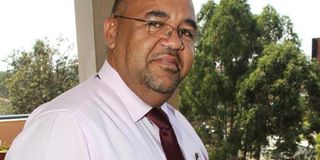Invesco Assurance Company registers Sh96 million loss

Invesco Assurance Company chairman Simon Kimutai. FILE PHOTO | DIANA NGILA |
What you need to know:
- Invesco was revived in 2010 by the Matatu Owners Association.
- It had been placed under statutory management by the Insurance Regulatory Authority in 2007.
Invesco Assurance Company has registered a Sh96 million loss for the year ending December 31, 2014 compared with a profit of Sh227.8 million recorded in the previous year.
The company’s principal officer, Mr Clifford Otieno, said the performance was as a result of increased insurance contract liabilities from Sh1.87 billion in 2013 to Sh2.22 billion.
“We have made the decision to increase the reserves to cushion the company. We are being cautious because of the recent decision by the government to allow 14-seaters back on the road. There are also new models of vehicles and the observation is that although accidents have reduced the vitalities are high and repair costs,” Mr Otieno said.
Invesco was revived in 2010 by the Matatu Owners Association (MOA) under its holding company, the Public Transport Investment Company, which injected Sh100 million in capital.
It had been placed under statutory management by the Insurance Regulatory Authority in 2007 for failure to pay claims and other debts.
Net earned premium increased from Sh1.58 billion in 2013 to Sh2 billion last year but claims increased from Sh590 million to Sh854 million in the same period.
The firm’s financial statements were audited by Horwath Erastus and Company and approved by the board of directors on March 26.
Company chairman Simon Kimutai said the firm was still dealing with historical financial problems that saw new owners inherit liabilities of Sh1.5 billion.
Pinnacle Projects Limited, which was hired by MOA to do a feasibility study on Invesco before it was revived recommended that the association should require its members to have passenger manifests to control fraudulent claims.
The company is due to reduce claims through self-policing since shareholders are its clients.




